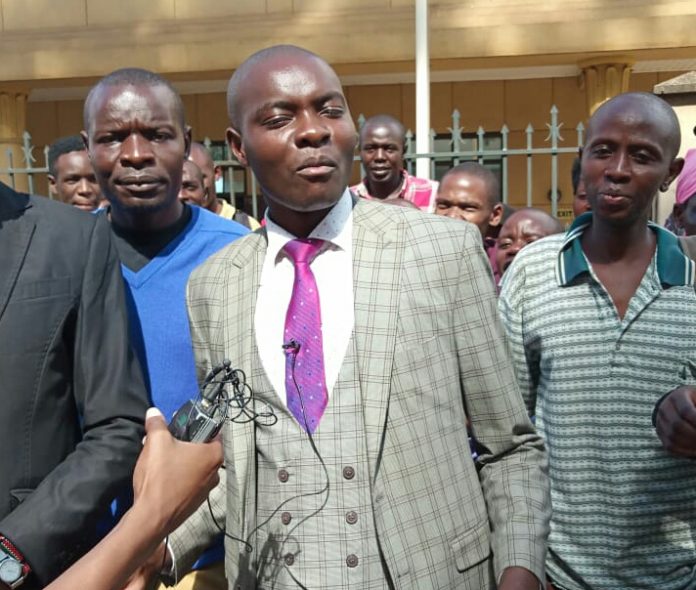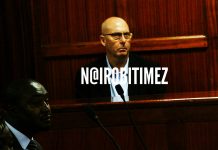BY SAM ALFAN.
Bunge la Mwananchi has moved to court seeking to stop implementation and construction of the Jomo Kenyatta Airport-Westlands express way.
Through it’s President Henry Shitanda, the association seeks to stop the construction of the said highway pending the hearing and determination of the case.
In the court documents filed in court, he further seeks an order to prohibit the Kenya National Highways Authority and the Attorney General from undertaking or implementing the construction of the highway until they conduct public participation.
Further, the association claims that the public should be involved in the said project per the Public Finance Management Act among others.
Shitanda is also seeking an order to compel Kenha and AG to conduct public participation and involve the people on the intended implementation and construction of the express way.
He claims on October 16, 2019, President Uhuru Kenyatta in conjunction with Kenha presided over the launch of the JKIA express highway.
“The design, negotiations, structures and planning was done in secrecy and the poly decision to establish or formulate the aforesaid designs or the said express way was as well done and formulated in secrecy in an opaque manner and without the involvement of the members of the public of any other Persian. To be affected by the intended construction,” says Shitanda.
He argues that there was no such notice, publication or dissemination of information relating to the said project was ever made to the members of the public and the project as it stands offends the constitutional values and principles of public participation and the involvement of the people in financial matters.
Shitanda claim that on November 21, last year through his lawyer wrote to KeNHA and attorney general enquiring about the project and requested them to conduct public participation and to involve the people on the same.
He wants the court to intervene at this early stage of the project to secure the usage and expenditure of public resources.
Last year Supreme Court ruled that public participation must be real and illusory.
“It is not a mere formality to be undertaken as a matter of course just to ‘fulfill’ a constitutional requirement. There is need for both quantitative and qualitative components in public participation,” the Judges stated.
The court added, “As a constitutional principle under Article 10(2) of the constitution, public participation applies to all aspect of governance.”
The judges said that lack of prescribed legal framework for public participation is no excuse for not conducting public participation, the onus is on the public entity to give effects to the constitutional principle using reasonable means.
They added that public participation is not an abstract notion, it must be purposive and meaningful and public participation must be accompanied by reasonable notice and reasonable opportunity and reasonableness will be determined on a case to case basis.
The five judges added that public relation is not necessarily a process consisting of oral hearing, written submissions can also be made and the fact that someone was not heard is not enough to annual the process.







